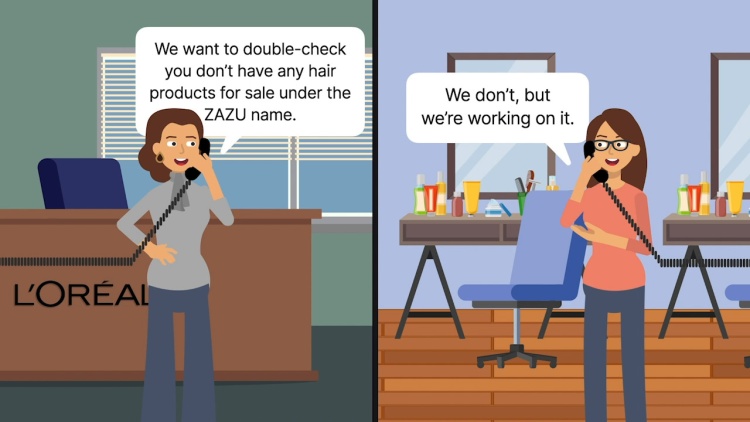Zazu Designs v. L'Oreal, S.A.
United States Court of Appeals for the Seventh Circuit
979 F.2d 499 (1992)

- Written by Sean Carroll, JD
Facts
Cosmair, Inc., a licensee of L’Oreal, S.A. (L’Oreal) (defendant), wanted to develop hair-coloring shampoo in 1985. After researching possible names for the new product, L’Oreal selected ZAZU. However, Zazu Hair Designs (Zazu Designs) (plaintiff) had already registered “Zazu” as its trade name for its salon. L’Oreal contacted Zazu Designs twice to verify that Zazu Designs did not sell products under that name. With this confirmation, L’Oreal began selling and advertising its ZAZU products in 1986. While L’Oreal was doing so, the owners of Zazu Designs were developing their own hair products and sending the products to friends. In September 1986, Zazu Designs began selling these products in its salon. Zazu Designs sued L’Oreal for trademark infringement and for an injunction to prevent L’Oreal’s future use of the mark “Zazu,” as well as for damages from L’Oreal’s prior use of the mark. The district court found that Zazu Designs had the exclusive right to use the term “Zazu” when marketing hair products. The district court granted an injunction against L’Oreal to prevent its future use of the mark, and awarded Zazu Designs $100,000 in damages for lost profits and $1 million for corrective advertising. L’Oreal appealed the district court’s decision.
Rule of Law
Issue
Holding and Reasoning (Easterbrook, J.)
Dissent (Cudahy, C.J.)
What to do next…
Here's why 907,000 law students have relied on our case briefs:
- Written by law professors and practitioners, not other law students. 47,100 briefs, keyed to 996 casebooks. Top-notch customer support.
- The right amount of information, includes the facts, issues, rule of law, holding and reasoning, and any concurrences and dissents.
- Access in your classes, works on your mobile and tablet. Massive library of related video lessons and high quality multiple-choice questions.
- Easy to use, uniform format for every case brief. Written in plain English, not in legalese. Our briefs summarize and simplify; they don’t just repeat the court’s language.





